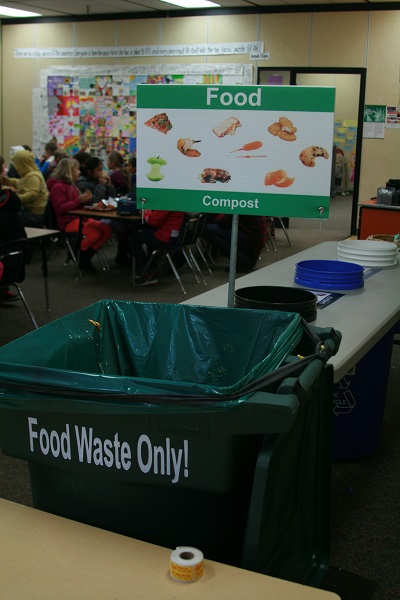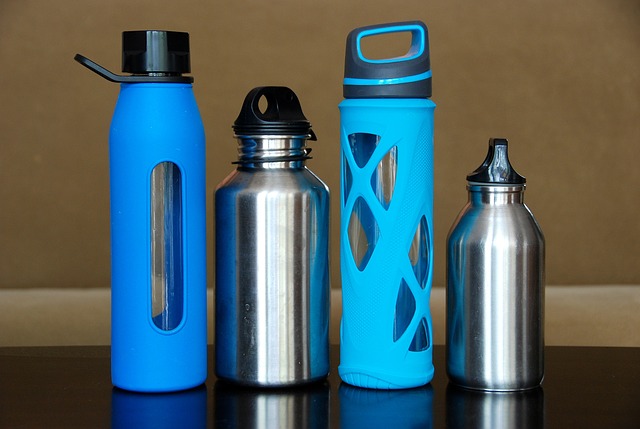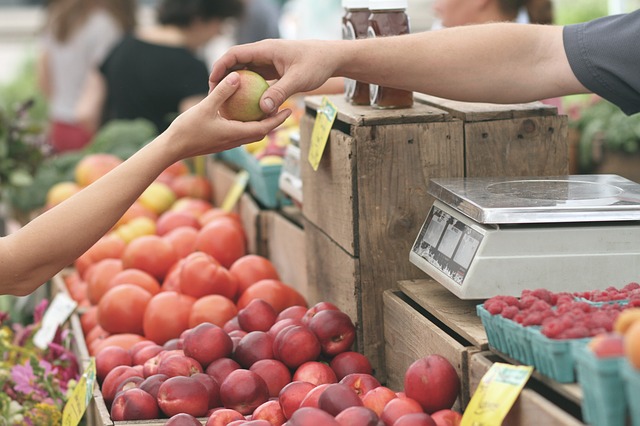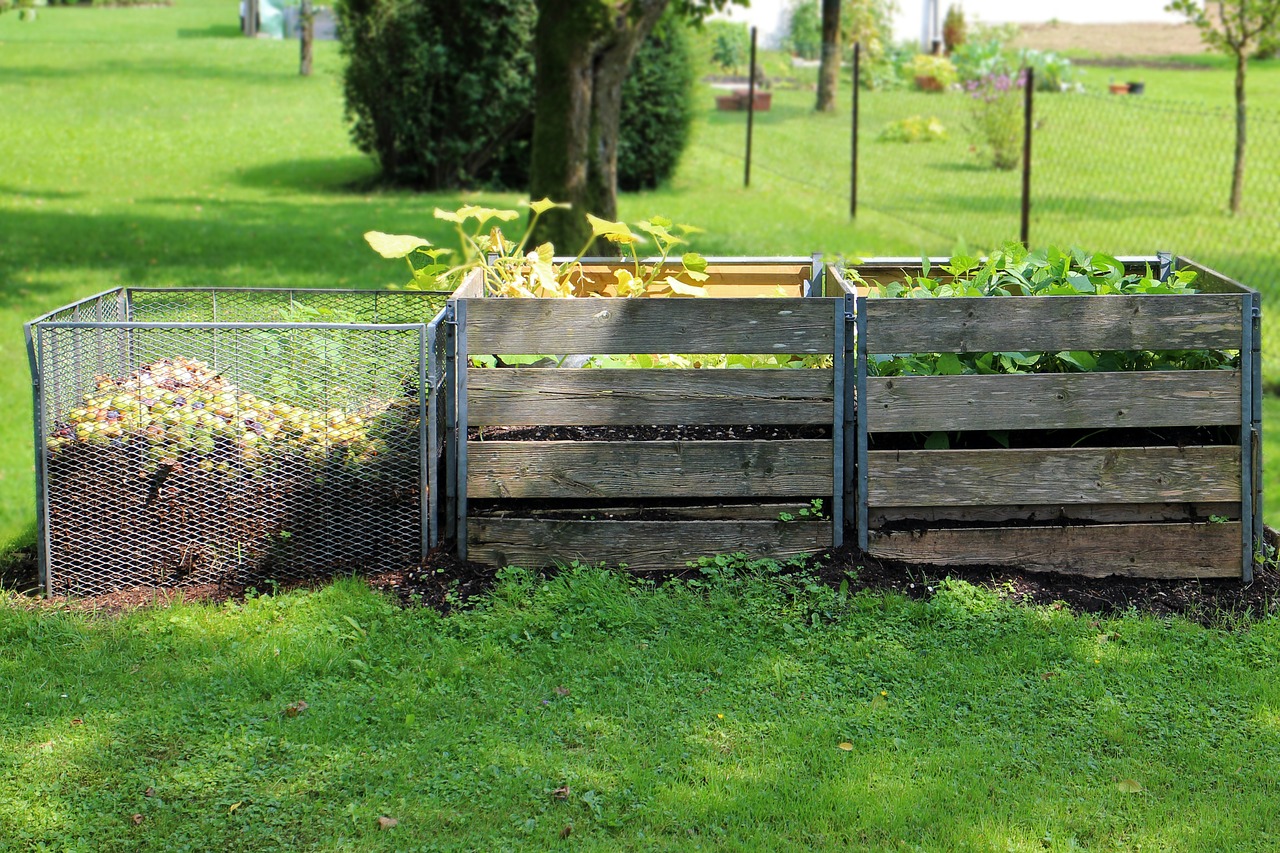Clark County Green News
Waste Resolutions: Going into 2018
Looking forward to the New Year, there are many ways we can continue to reduce waste.
Think twice, and think creatively about ways to reduce waste at home and abroad.
Look to reduce food waste, as that is the most costly of wastes.
Happy New Year!
As we come back from this holiday season and return to school and work, we have time to refocus and evaluate our time and talents so that they are centered on our goals and aspirations. One of the many things that we need a reminder of is why we need to sort waste properly, and reduce waste when possible. Often not discussed explicitly because of the "gross" factor of waste management, taking a candid look at how our community handles our waste is a vital way to understand how resources are managed. In short, how can we better use the stuff we have so that we don't make unneeded waste? How can we better serve the greater community that could benefit from reducing waste?Every day, nearly every action we take generates waste, and the choices we make determine how much waste we generate. In schools, one of the places where the most waste can be generated is in the cafeteria. Nationally and globally, food waste is estimated (from producer to consumer) to consist of nearly half the food being grown and processed in the world today. in the United States alone, 40% of food grown is wasted When food is wasted, not only is the food itself lost, but all the resources (water and habitat for growing/raising the food, manpower to handle resources, and fuel to transport/store) are wasted as well. Nearly half the water used in the United States to grow food is lost because it is used to grow wasted food. Next time you are at the grocery, think about all the food that goes bad because of improper planning or storage, and all the wasted resources by extension. The farmers hard work, the loss of life for an animal, wasted water and fertilizer in the field has all gone to waste. More importantly, there are people that could have benefited greatly from the food that is wasted. In the United States roughly one in six people do not know where their next meal will come from, and food insecurity is more detrimental to children due to the impacts a lack of nutritional, healthy meals can have on development. Food Insecurity is when someone does not always have the ability to get a healthy meal when they need it. This also continues to normalize the throwaway culture that we live in today, despite the fact that this way of living is harming us (and the planet) much more than the convenience it brings.
The way food is handled and processed also plays a big role in the amount of non-organic waste generated. The difference between bags of sliced apples versus a whole apple is a few ounces of plastic wrapping. For one person, that may not seem like much. But imagine if a school served bagged apples over whole apples or apples cut in-house? The few ounces in plastic for one meal becomes a few pounds for a school's worth of students, and over a school year the few pounds multiplies into a significant amount of plastic waste. The difference in garbage generated because of that one small choice becomes something much more substantial. The repeated actions (or repeated inactions) in peoples day-to-day lives are what have the most impact. By looking at the forgettable day-to-day actions we participate in that produce waste, we can start thinking of better ways to reduce our impact. Every time you use plastic or open something from packaging, think creatively, find another way to obtain that same item, but with different products. Like any smart goal (or resolution for the New Year), start small. Instead of disposable water bottles and coffee cups, invest in a reusable thermos and/or water bottle! Meal planning for the week with your family provides a unique opportunity to learn more about healthy nutrition and better ways to stretch your dollar, as well as practicing valuable cooking skills. Looking for food from local sources, such as a farmers market or other local food producer such as a Community Supported Agriculture program, is an excellent way of reducing the pollution impact from food transportation and handling. Community Supported Agriculture is usually a subscription-based service where food from local growers is delivered to your neighborhood, reducing the pollution generated by transportation across states and even countries! Another bonus is the food delivered from a local grower will almost always be fresher and have a higher nutritional content because it was picked within that week, or even that day!
Overall we generate too much waste, and so much of the waste we generate isn't really that at all. The stuff that could be recycled that is going in the garbage is a valuable material that is ready to be repurposed into other material. Manufacturing an aluminum can from a recycled can saves 95% of the energy to produce that same can from raw materials. Paper products can be recycled several times over after a tree is cut down; a potential pathway of reusing paper starts with office paper, to cardboard, to newspaper, to tissue paper. The food that we throw away can be useful in making compost, a special type of nature and man-made soil that is the "black gold" of gardening. Filled with the proper nutrients, minerals, and microorganisms, it is a key component of a healthy and organic garden. In its simplest form, composting is organic recycling, and it's much easier than recycling cans or bottles. As long as there is no contamination by plastics or paper or metals and its left alone, it will decompose into organic matter on its own! Composting is such a simple and efficient way to return wasted food back to the Earth. The green Food Waste carts that are in every sort line in a green school serves to collect food scraps for compost, using the food that wasn't eaten to help grow more food. Compost is beneficial in the long run to help keep soil healthy, retain water and reduce the use of often-overused pesticides and fertilizers that have unintended effects on our watersheds and shorelines. More importantly, we can prevent creating food waste by making better decisions in meal planning and using leftovers creativley to extend the value of our food.
With the passing of another year, take the time to reflect on the actions (or inactions) that you have made. What worked well? What didn't? Take some time as you are settling back into your routines at home, work, and school to think about how you can help yourself and others to make a difference to improve the community and the world.When you subscribe to the blog, we will send you an e-mail when there are new updates on the site so you wouldn't miss them.






